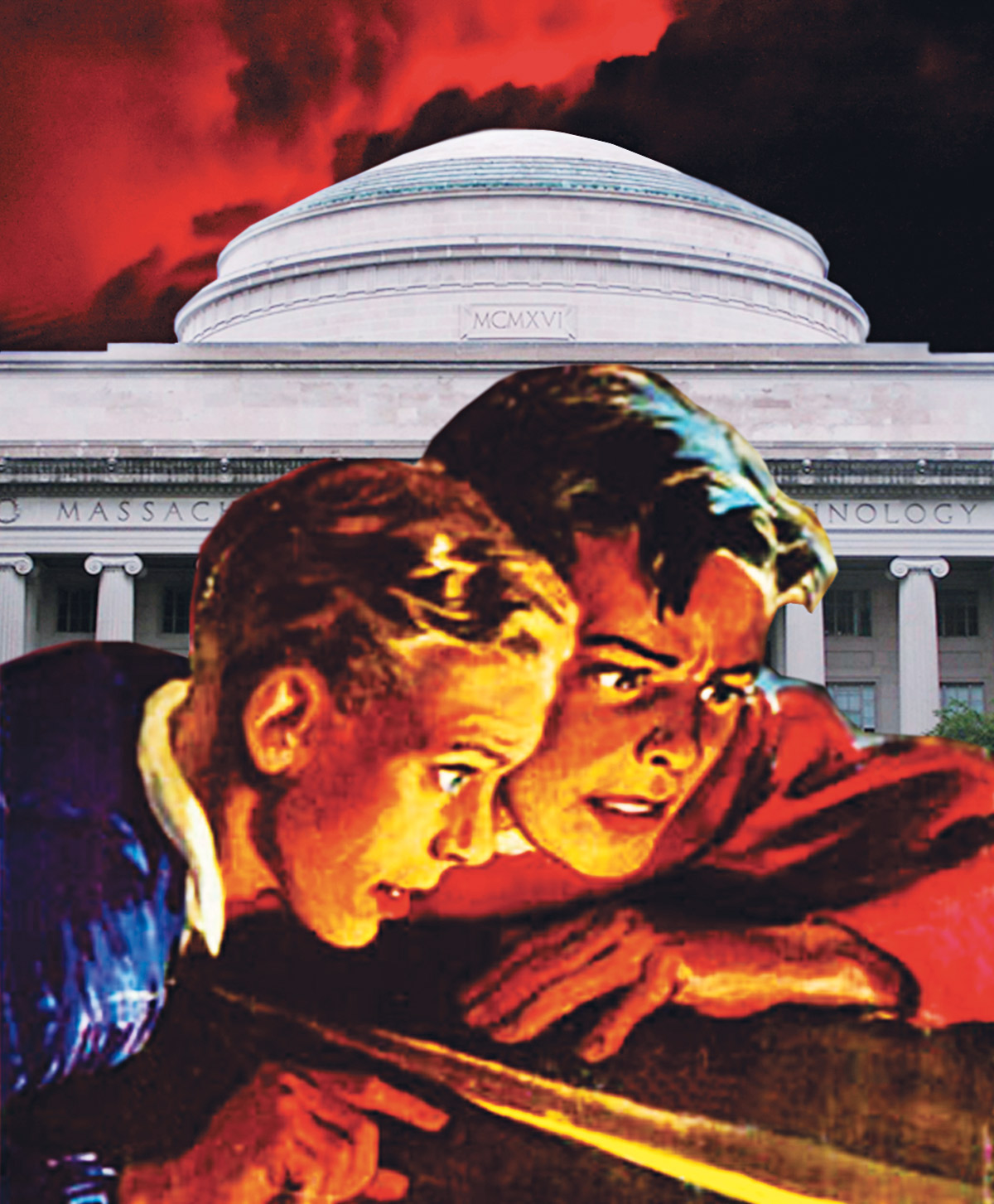The Case of the Gumshoe Geeks

Illustration by Heather Burke
Ordinarily, the MIT Crime Club confines its efforts to checking police logs, collecting incident data, and constructing crime maps. It recently awarded an East Campus dorm a “Sparky the Firedog” award for cutting down on false fire-alarm incidents, and is working to develop a saliva-based alcohol-screening test, which, when applied to the tongue, could measure drunkenness.
But when alleged drug dealer Justin Cosby was gunned down in a Harvard residence hall this spring, the club sensed a chance to step up to a new kind of crime-fighting. Hiring a private investigator to look into the case, it stuck its nose precisely where the professionals didn’t think it belonged. Irked Harvard police arrested the PI snooping around the crime scene, and booked him for trespassing and breaking and entering. Local papers picked up the story of the club—filled with protractor-wielding Hardy Boys and Nancy Drews, no doubt—prompting guffaws across town.
In the parlance of Scooby-Doo, just who are these meddling kids? The crime club was founded in 2005 by a pair of students, yet its ringleader these days is hardly a kid: James Herms, who graduated from MIT in 1987. The Cantabrigian made a small fortune through canny investments on money reaped while developing toothpaste formulas, and now uses some of that cash to help fund the crime club, which currently includes five students (although MIT sanctions the group, it does not provide any funding).
Despite the quiet ambitions of the club’s student members—they tend to take pride in accomplishments like influencing state crime legislation—Herms has succeeded at making himself a sort of gadfly down the street at Harvard. There, he’s frequently inserted himself into issues you’d expect to be more the province of students than forty-something townies. Herms is now banned from most of Harvard’s campus for reasons that, if you believe him, stem from his persistent efforts to improve school safety policy. If you believe the reporters at the Harvard Crimson, the banishment is the result of a series of alleged incidents that include making inappropriate sexual comments to students, misrepresenting his relationship with Harvard security guards, and trying to hire students to drink booze with university cops (yes, you read that last one right). Herms denies any wrongdoing. MIT officials, as well as the Harvard and Cambridge police departments, declined comment.
The crime club’s actual president, MIT junior Tina Margiotta, says Herms made the call to hire the PI on his own. She’s fine with that, though not exactly thrilled with the attention the PI’s arrest attracted. “It is not our goal to garner publicity,” she says. Anyhow, in her view, the club’s primary focus right now isn’t solving murders, but rather revamping its website to provide easier access to Cambridge crime data.
Meanwhile, neither the apprehension of the private eye nor the arrest of two New York men whom police believe were behind the slaying has dented Herms’s ambitions. “We will have a role,” he says. To wit, the club still has four private investigators working the case—albeit all part time, performing background checks on people involved—and earning about $110 an hour for their effort. As he turns up new info, Herms says, he plans to dish leads to the press.
Ever the civic-minded sort, Herms got his start as a rabble-rouser while living in New York in the ’90s, when he joined a group protesting Mayor Rudy Giuliani’s policy of auctioning off community gardens. “I would dress up as a giant pod of peas,” Herms recalls wistfully. When he moved back to Boston to pursue a graduate degree, he decided to focus his activist attentions on campus security matters.
Herms knows as well as anybody that big private universities are notorious for keeping a lid on anything that could damage their reputation, especially when it comes to crime. “Harvard is really good at maintaining an image that there isn’t anything wrong, and we don’t know if there is or not,” he says, in reference to the Cosby case.
“We have a huge amount of background material on the people involved,” he adds, theorizing that the shooting could be indicative of larger problems at Harvard. “There may be something very serious going on, and I can’t really say any more than that,” he said, before saying more. “There are several hypotheses, by the way, each of which is very scary. And basically it’s a drug scene at Harvard, and we’re not talking about marijuana.”
Herms’s intentions are indeed noble; his execution so far, a bit strange. If nothing else, he sort of makes you wonder what the MIT nuclear club (and yes, there is one) is up to.